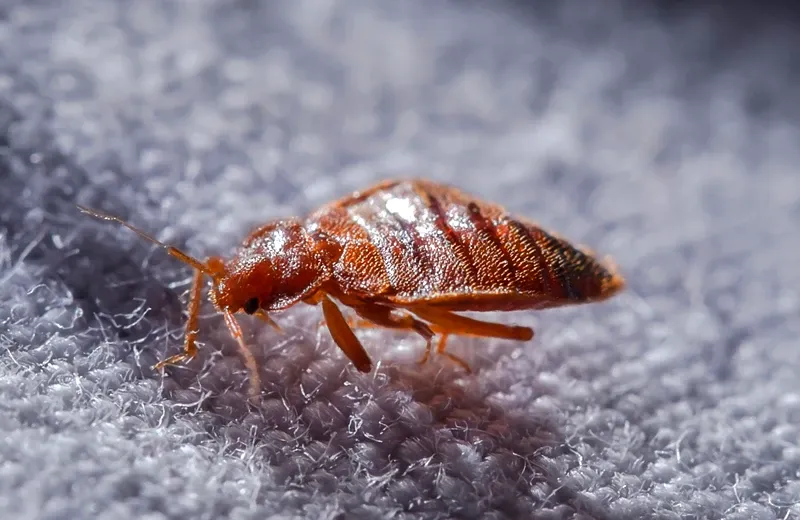Kinds Of Bug Control: Which Technique Is Right for Your Problem?
When confronted with a bug infestation, the selection of a suitable approach for insect control is essential in successfully taking care of the scenario. From chemical treatments to organic solutions, there exists a series of strategies that can be used to deal with different kinds of parasites. Each approach comes with its very own collection of considerations and benefits, making the decision-making procedure a nuanced one. Recognizing the nuances of each method and evaluating their compatibility with the particular bug problem at hand is essential for attaining long-lasting success in bug management. By discovering the numerous kinds of bug control techniques readily available, individuals can make educated decisions customized to their special scenarios, making sure a much more efficient and sustainable outcome in parasite elimination.
Chemical Parasite Control
Chemical parasite control entails the usage of artificial or normally derived chemicals to take care of and get rid of pest populations properly. This method is typically utilized in agriculture, forestry, and domestic setups to fight a wide variety of pests, including rodents, pests, and weeds. Using chemical pesticides can offer quick and targeted remedies to pest problems, making it a preferred selection for lots of people and organizations.
Among the crucial advantages of chemical pest control is its capability to quickly eliminate insects, reducing the danger of damage to plants, residential or commercial property, and human wellness. By making use of specific chemicals that target certain insects, this technique can successfully regulate infestations while minimizing harm to valuable organisms and the setting when applied appropriately.
However, the use of chemical insect control likewise increases concerns concerning potential adverse effects on non-target species, water sources, and human health and wellness. It is essential to follow safety and security guidelines, apply chemicals properly, and think about different pest control techniques to minimize these risks and ensure lasting bug monitoring practices.
Organic Insect Control
Biological pest control, additionally recognized as biocontrol, utilizes living organisms to handle and reduce parasite populaces naturally. By utilizing the bug's natural predators or pathogens, organic insect control provides a eco pleasant and lasting option to pest administration.

Mechanical Bug Control
Making use of hand-operated and physical techniques to manage pest populaces, mechanical bug control uses an alternative technique that does not count on the use of living organisms or synthetic chemicals. This technique entails making use of obstacles, traps, or other gadgets to physically deter or get rid of pests. By obstructing insect entry factors or establishing up traps to catch them, mechanical insect control can properly reduce problems without presenting chemicals right into the setting.
One usual example of mechanical parasite control is using mesh screens on home windows and doors to avoid bugs from getting in structures. This basic yet reliable technique functions as a physical obstacle, keeping bugs out while enabling appropriate air flow. In addition, tools like mousetraps, fly swatters, and ultrasonic repellents drop under the mechanical bug control category.
While mechanical bug control approaches can be labor-intensive and require normal surveillance and upkeep, they use a eco friendly and lasting remedy for handling parasite invasions. By integrating different mechanical strategies, property proprietors can create a detailed bug control approach that minimizes reliance on chemical pesticides.
Physical Insect Control

Some usual physical parasite control methods consist of using barriers such as webs or screens to avoid parasite access, traps to record and eliminate bugs, and hand-picking to literally get rid of pests from plants or frameworks. Furthermore, methods like heat therapies can be made use of to manage bugs like bed pests by increasing the temperature to levels that are lethal to the bugs.
Physical parasite control is particularly valuable in incorporated pest administration (IPM) techniques, where multiple pest control techniques are integrated for reliable bug management while lessening using chemicals. By using physical insect control techniques, people can successfully attend to parasite infestations with minimal ecological influence.
Integrated Parasite Administration
When applying physical pest control approaches as component of pest monitoring methods, Integrated Bug Management (IPM) arises as a thorough strategy that leverages various techniques to successfully control pest populaces. IPM concentrates on long-lasting prevention of insects with a mix of biological, social, physical, and chemical devices tailored to certain bug concerns. By incorporating multiple control strategies, IPM aims to reduce the dangers connected with bugs while additionally decreasing dependence on chemical options.
One key aspect of IPM is the focus on tracking and assessing pest populations to establish the most ideal control techniques. This proactive method enables early intervention and targeted approaches, leading to extra effective pest management. In addition, IPM advertises eco-friendly methods by prioritizing non-chemical control approaches and only making use of chemicals as a last option.
Final Thought

By utilizing the pest's all-natural predators or pathogens, organic parasite control uses a lasting and environmentally friendly solution to pest administration. - Kings pest control Cincinnati
Using hands-on and physical techniques to manage pest populaces, mechanical insect control offers a different technique that does not count on the use of living organisms or synthetic chemicals.An effective method to handling insect populaces without depending on chemical or organic methods entails the use of physical pest control methods.When carrying out physical parasite control approaches as component of bug monitoring strategies, Integrated Bug Management get rid of ants (IPM) emerges as a comprehensive technique that leverages different methods to properly control pest populations. Chemical pest control involves the usage of pesticides, biological pest control makes use of all-natural killers, mechanical bug control involves physical obstacles, physical pest control includes trapping or removing pests, and integrated bug management combines numerous approaches for an all natural strategy to pest control.